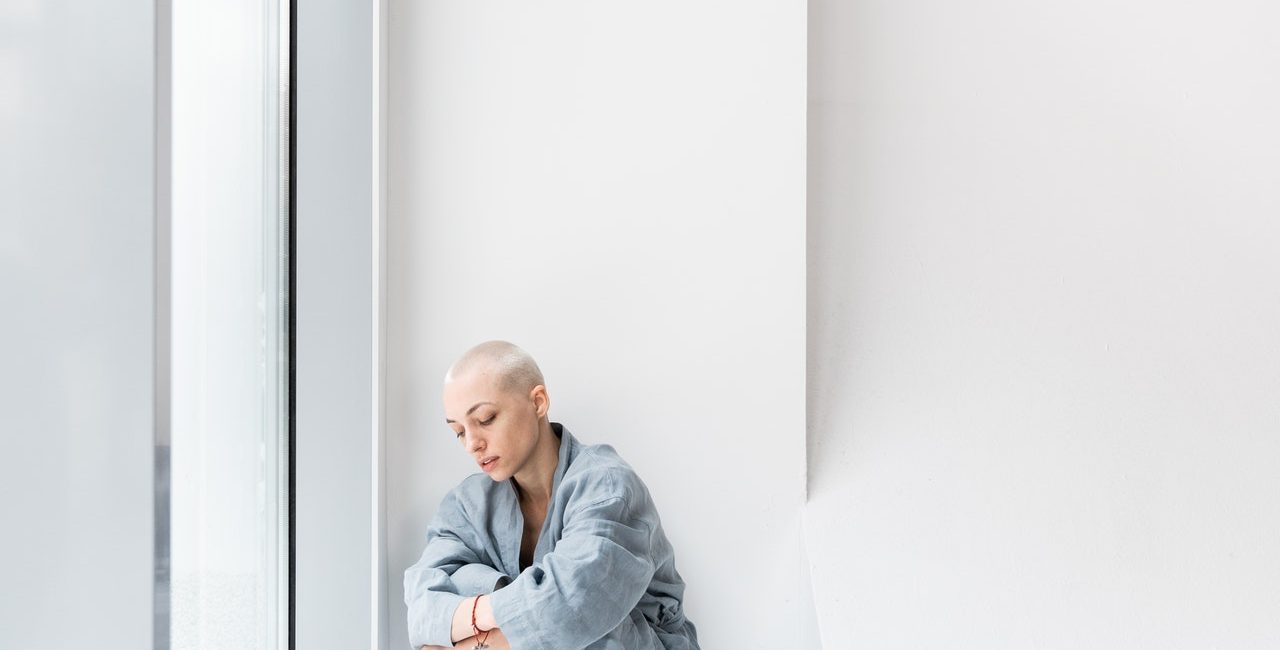
Rouzbeh Pirouz is Co-Founder and Senior Partner at London-based Pelican Partners, a real estate and private equity investment firm.
Historically, society has failed to provide for people with disabilities in the same way it does for the rest of the population.
Now that COVID-19 has ripped through the world’s population for almost two years, it’s time for foundations to actively prioritise disability inclusion within their plans. Why? Because the pandemic has so far killed more than five million people around the world. But its long-term impact on people with disabilities is disproportionately catastrophic.
We must fight for disability inclusion
There are around one billion disabled people living in the world today. This includes people living with chronic illnesses, and now it includes those living with Long COVID. The pandemic has massively emphasised the disparity within our society in terms of healthcare distribution.
We can see this with the vaccination programme, which has so far failed almost entirely to ensure that people in developing countries are protected. We all must work together to support disabled people, to enhance their rights and to ensure that they have access to healthcare and other services in the same way as everyone else.
The world is still living with this pandemic, and different countries are trying to drag their economies and populations out of the worst impact. But for disabled people, everything is harder. Whether that’s accessing healthcare, receiving financial support from the Government or being heard among the growing clamour for assistance.
The philanthropic sector must incorporate the needs of disabled people
For foundations planning philanthropic responses to COVID-19, the Disability & Philanthropy Forum has clear advice on how to ensure a disability-inclusive strategy.
Including the views and perspectives of disabled people in the creation of any grant or decision-making process is the first step. All funding should recognise how it impacts the disabled community and be planned accordingly.
From times of crisis, we often find that collaboration and innovation can emerge. And COVID-19 has shown the world that now is the time to make changes that will resonate into the future. For the world’s disabled community, that time cannot come soon enough.
Disabled people are undergoing ever-more precarious situations due to the pandemic. Anyone with a chronic illness, such as respiratory or immune system conditions, has inevitably suffered more. The inequality goes further than the disability; however, many in this community struggling with money, living arrangements, finding work and many other aspects of life that have been made more difficult due to the pandemic.
COVID-19 has disproportionately impacted disabled people around the world
And while the implementation of social distancing and self-isolation measures are reducing in most countries around the world, the profound impact of the choices that disabled people have had to make still linger.
Isolation was cataclysmic for people who relied on support from carers or health professionals, such as family members or friends. Impossible choices had to be made when it came to care, quality of life and medical needs. Either disabled people during lockdowns were forced to put themselves and their helpers at a greater risk of catching the virus, or they lost their access to healthcare, rehab and mental health services.
Institutional care systems broke down in some countries at the start and mid-points of the pandemic. For example, the UK’s institutional care network for elderly people underwent a profound time of loss. Unsupported care staff struggled with impossible decisions and a helpless task, with many also dying.
This is an astonishing failure of the Government and the institutional care in the UK. But it isn’t just the kind of care meted out to the elderly that is lacking. Disabled people and their support workers have been crying out for better funding and care for decades.
We live in a time of prolonged austerity, with public services cut to the bone – and that was before the pandemic. This means that many disabled people have simply been denied their rights to community life, to making their own decisions and much more.
The systemic removal of funding for community-based care models for disabled people must now be reversed.
The global problem for disabled people
This isn’t just a problem in the UK, of course. It led to a statement issued by the Global Action on Disabilities (GLAD network) about the importance of including disabled people in any responses to COVID-19.
The statement asked… “… all actors, including Governments, international financial institutions, international cooperation agencies and private donors to be inclusive of persons with disabilities in their response to COVID-19”.
According to the Lilly Family School of Philanthropy, which is based at Indiana University, corporations, funds and foundations in the United States have collectively spent about $18 billion for global pandemic relief.
This dwarfs the amount of philanthropic funding that has been raised for other crises, such as the Australian bushfires at the start of 2020, which raised $152 million. Furthermore, the Centre for Disaster Philanthropy shows that at least 850 COVID specific funds have so far been set up in the US.
As we continue to try and live with the pandemic, philanthropic relief in the West has shifted from the immediate concerns of providing healthcare workers with assistance, giving citizens fiscal support and boosting the supply of food to the worst off and is now focusing on recovery.
Philanthropy has shifted towards rebuilding
The final phase of philanthropic responses to natural disasters is in the rebuilding phase. We badly need to ensure that community networks are sustainable and future-proofed, and this means ensuring that the disabled community around the world are included as standard.
And we know from experience and recent events that in the UK, at least, this will be an uphill struggle. For example, the current Government recently voted to scrap the £20 extra per week for Universal Credit recipients. Introduced at the start of the pandemic, this £20 has been a lifeline for the poorest in this country.
Now that the Government’s latest Budget scrapped the £20, more than 600,000 disabled people in the UK have lost out. At least 500,000 households affected by this cut have no one able to work at all – that means no income and a total reliance on benefits.
While the Government says that its slight increase in the minimum wage should somehow offset the cut to UC, it again ignores the people who are lost in the no man’s land of not working because of disability.
According to openDemocracy, 93,000 of the half million households with people who cannot work due to disability are also home to children. These cuts come at a time of rising costs for food and utilities, with many struggling to choose between eating and heating.
Disabled People Against Cuts (DPAC) are urgently asking the Government to reverse this cut. A representative, Linda Burnip, says: “We know disabled people’s living costs have increased dramatically during the pandemic and now with inflation and fuel costs spiralling out of control, we are asking for disabled people to be given enough social security payments to meet their needs and allow them to both heat and eat.”
True social equality needs inclusivity
It’s now absolutely urgent that the world refocuses the narrative about global social justice to fully incorporate disability inclusivity – as standard. COVID-19 has thrown yet more light on a systemic problem that was already there.
Disabled people around the world were already struggling to be treated equally in many ways. Add in a global pandemic and a prolonged crisis period, and the differences are even more apparent. Throughout the pandemic, disabled people have had to face voids in the healthcare they need and in many countries are still struggling even to get the vaccines they need.
For the philanthropic sector to truly advance social equality, there can be no more looking the other way. To achieve a culture of health, the whole of society must look squarely at the barriers in place that prevent so many from accessing the basics.
There must be an active attempt for every sector to empathise and understand the needs of people who live with disabilities. The pandemic has shown the gaps in the so-called successful health systems of the West and those in developing countries; more work needs to be done.
In reality, I have seen little evidence so far that the UK and the US, for example, are even capturing the data we need about the impact of the pandemic on their disabled citizens in order to make the kinds of changes we need. The transformation of public health data systems and analysis would be a good start.












